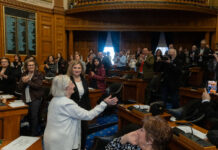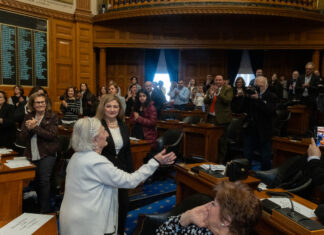By Aram Arkun
Mirror-Spectator Staff
WATERTOWN – Sam Page is the increasingly prolific television and film actor who is one of the stars of the movie “1915.” “1915” is premiering in the Boston area on August 27 and September 10, with the Mirror-Spectator and the Tekeyan Cultural Association sponsoring the latter showing. Page recently spoke with the Mirror about his role in the film.
In a sense, Page plays two roles in ‘1915’. His character, James West, is himself the contemporary actor who plays the Turkish colonel in the play being presented within the movie. When the writers/directors of the film, Garin Hovannisian and Alec Mouhibian, contacted Page’s representative and offered him the part, he first wanted to read the script and meet them. Page declared, “We did those two things, and it did not take a whole lot of convincing. I was interested immediately. … I liked them. They were very passionate. I thought they had a very creative look at the subject matter.”
In turn, Mouhibian declared, “We admired Sam’s work in ‘Mad Men’ and ‘House of Cards.’ He brings hidden layers to a role that come up to the surface in subtle, surprising ways. This made him perfect for a role like James West/Turkish Colonel, which is more complex than it looks.” Mouhibian suggested that viewers consider the following: “Why has Simon chosen a good natured All-American, well-meaning celebrity actor to play the role of the Turkish Colonel in ‘1915’ the play?”









